Thanks to diversification, exchange-traded funds (ETFs) can make excellent low-risk investments. Some come with the added advantage of keeping taxable events to a minimum. But what are the best tax-efficient ETFs to buy now? Read on to learn about our favorite.
Best Tax-Efficient ETFs
The iShares Core S&P 500 ETF is one of many exchange-traded funds to track the S&P 500 index. This gives the ETF exposure to a multitude of large, established US companies.
It offers a low-cost, tax-efficient approach to many of the United States’ largest cap stocks. The fund holds 503 unique holdings from across a range of industries.
Over one-quarter of the ETF pulls from information technology, with high exposure to health care, financials, and consumer discretionary.
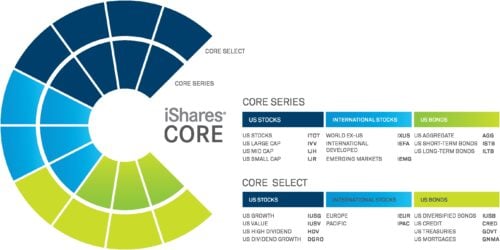
Top holdings include Apple Inc (NASDAQ: AAPL) at 5.8%, Microsoft Corp (NASDAQ: MSFT) at 5.3%, and Amazon.com Inc (NASDAQ: AMZN), rounding out the top three at 2.3%.
These companies together represent more than $290 billion in net asset value. IVV dates back to May 2000 and has seen nearly 180% growth.
Historically, the ETF follows an upward trend and has only turned in losses over a few years. Alongside long-term growth, the ETF distributes a quarterly dividend yield of around 1.66%.
Maintenance fees are just 0.03%, making the iShares Core S&P 500 ETF an all-around appealing investment opportunity.
Vanguard Total Stock Market ETF (NYSEARCA: VTI)
Vanguard’s Total Stock Market ETF taps into the CRSP US Total Market Index, seeing to mirror its performance. The fund came to be in 2001 and requires no more than $1 for a minimum investment.
It tips a little further to the right on the risk/reward scale than other ETFs. As a result, the Total Stock Market ETF is a fund you’ll likely want to hold onto for many years.
VTI captures large, mid, and small-cap stocks that cover growth and value. While passively managed, the fund remains fully invested.
A total of 4,026 unique stocks fill the ETF, encompassing a diverse range of industries. Top sectors include consumer discretionary, health care, industrials, and technology.

These companies comprise more than $1.2 trillion in net assets. A few companies carry a significantly heavier weight than others and are known for exceptional growth.
Apple Inc (NASDAQ: AAPL) sits at 5.6%, Microsoft Corp (NASDAQ: MSFT) at 4.7%, and Amazon.com Inc (NASDAQ: AMZN) at 2.1%. All other companies maintain 1.5% of the total or less.
Although share prices are down for 2022, VTI celebrates over 200% growth from inception. A positive outlook for 2023 should send shares back in the right direction.
In the meantime, shareholders can enjoy a 1.65% dividend yield to help offset any loss. The 0.03% expense ratio keeps fees low for investors wanting to participate.
Our next iShares fund is the Core S&P Total U.S. Stock Market ETF. As the name implies, it offers exposure to the total US stock market.
This means access to some of the smallest and most prominent companies currently listed. All in all, the ETF holds a diverse selection of 3,380 stocks.
These stocks come from a long list of industries, the most prevalent being information technology.
iShares Core S&P Total U.S. Stock Market ETF also has exposure in health care, financials, and consumer discretionary goods.
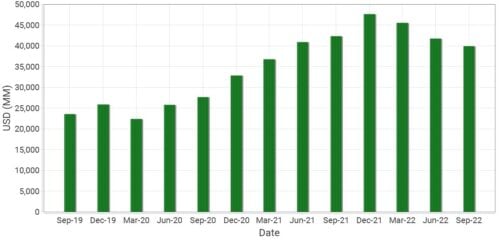
Apple Inc (NASDAQ: AAPL) and Microsoft Corp (NASDAQ: MSFT) lead the way, making up 4.9% and 4.5% of the fund’s total weight, respectively.
Amazon.com Inc (NASDAQ: AMZN) makes up a distant third, with Berkshire Hathaway Inc Class B (NYSE: BRKB) not far behind. All shares involved total well over $39 billion in net asset value.
The fund follows stock market volatility well, seeing dips in rough economic years. Its overall trend points upwards, seeing more than 200% growth since its inception in 2004.
Investors will want to plan for slow, long-term growth while benefiting from a 1.5% quarterly yield. As a tax-efficient ETF, expenses only come to 0.03% of your total investment.
Vanguard Growth ETF (NYSEARCA: VUG)
The Vanguard Growth ETF falls into the large growth category, focusing on stocks slated to win big over time. It seeks to track the performance of the CRSP US Large Cap Growth Index.
Although passively managed, VUG follows a full-replication approach to its underlying index. All stocks in the ETF come from the United States and feature some of the largest companies seeing good growth.
This approach puts VUG in a slightly riskier position than other ETFs but also forecasts higher rewards.
Nearly 70% of companies come from either technology or consumer discretionary sectors, with the remaining 30% encompassing everything from real estate to energy.
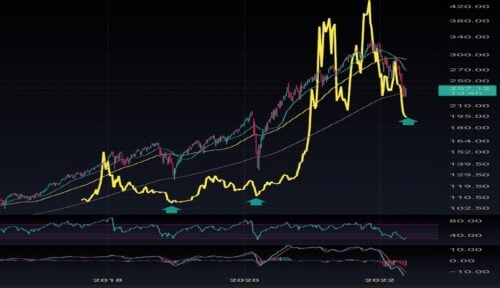
A total of 247 stocks make up this ETF, bringing net asset value to $144 billion.
In a recurring trend, Apple Inc (NASDAQ: AAPL), Microsoft Corp (NASDAQ: MSFT), and Amazon.com Inc (NASDAQ: AMZN) hold the top spots. With VUG, Apple and Microsoft are responsible for nearly 25% of the ETF’s total weight.
Its market price is down 33% for 2022, suffering from the downturn. With long-term gains still up over 300%, this is an ETF to hold indefinitely.
Added incentives come in the form of a 0.76% dividend yield and a low 0.04% expense ratio.
Schwab U.S. Broad Market (NYSEARCA: SCHB)
Schwab’s tax-efficient ETF dances with the Dow Jones U.S. Broad Stock Market Index, seeking to match returns step by step. Like the index, the ETF contains a healthy mix of small, mid, and large-cap securities.
It gives access to nearly 2,500 of the country’s largest publicly traded companies. Gathering stocks from various sectors, SCHB offers a diverse selection to help battle volatility.
Leading the charge are some of the United States’ premier companies, including Apple Inc (NASDAQ: AAPL), Microsoft Corp (NASDAQ: MSFT), and Amazon.com Inc (NASDAQ: AMZN).
With so many holdings, no company carries more than 5% of the fund’s total weight.
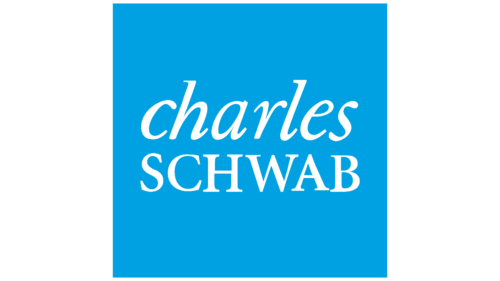
Together, assets total just above the $20 billion mark. Despite so many big names, the fund’s NAV price sits at a very reachable $45.
SCHB is the newest tax-efficient ETF to make our list, created in 2009 to serve at the core of a diversified portfolio. Avoiding the trouble from the 2008 market, the ETF has seen relatively consistent growth until just last year.
Even with the woes of 2022, SCHB still sits 250% up from its price at inception. Distribution yield back to shareholders hovers around the 2% mark, with an expense ratio of just 0.03%.
Vanguard Tax-Exempt Bond ETF (NYSEARCA: VTEB)
Vanguard’s Tax-Exempt Bond ETF unsurprisingly holds several low-risk bonds that play into a more conservative investment strategy.
It resembles the S&P National AMT-Free Municipal Bond Index it follows, yet only contains half the number of bonds. Most of VTEB’s 6,900 bonds have credit ratings of A.A. or higher, with only 20% falling below this threshold.
Even so, the fund still contains more than $25 billion in net assets. All included bonds are entirely tax-exempt.

The majority take between ten and 30 years to mature, with an average stated maturity of just over 13 years. If held to maturity, the average yield to investors is 3.4%.
2022 was a challenging year for the bond market, and VTEB felt this in full. The fund lost all the gains it had made over the last seven years but now appears to be turning that momentum back around.
Anyone already invested would have been able to rely on a 2.1% dividend yield to soften the blow. A 0.05% expense ratio also helps keep cash flowing in the right direction.
Are Tax-Efficient ETFs a Good Investment?
Exchange-traded funds, by nature, are usually tax efficient, helping you keep the lion’s share of what you earn. They have fewer taxable events than other investment strategies, such as mutual funds.
ETFs with diverse core equity work best, as they can keep capital gain distributions to a minimum.
Fund managers carefully watch investment inflows and outflows, allowing them to toss securities poised to generate large capital gains. These ETF shares move without transactions, leaving you free from tax implications.
Of course, you’ll still deal with capital gains tax if and when you sell your shares of an ETF.
Since we’re meant to hold slow-growth ETFs for the long haul, chances are you’re paying long-term tax rates that sit lower than short-term ones. Speaking of the long-term nature of exchange-traded funds, these investment opportunities fit a crucial niche in any portfolio.
They’re known for slow gains over time, representing a (hopefully) stable source of growth you can build the rest of your investments around.
ETFs sweeten the pot with at least one dividend payout every year. We’re excited about our picks’ potential for 2023, but even we can’t predict the future. Take the time to research before diving into any kind of investment.
Frequently Asked Questions (FAQs)
Are ETFs really more tax-efficient?
Indexed equity ETFs are often more tax efficient than mutual funds or other investment types. These funds rarely distribute capital gains, keeping taxable events to a minimum.
How do I avoid paying taxes on an ETF?
There’s no way to avoid paying taxes on capital gains from an ETF. If you can keep positions for over a year, you can deal with long-term tax rates significantly lower than short-term ones.
Which ETFs are tax-free?
If you look around enough, you can find tax-exempt funds like Vanguard’s bond ETF listed above. Holders of these bonds do not pay taxes, at least at the federal level.
Are Vanguard ETFs more tax-efficient?
Vanguard pioneered low-expense ratio ETFs, allowing investors to collect more and pay less. Many of its exchange-traded funds also have the luxury of being tax efficient.
Do I pay tax when I sell an ETF?
You’ll have to pay taxes on your income from selling an ETF. Throughout your time investing in the fund, you must also pay taxable income from capital gains.
You might also like:

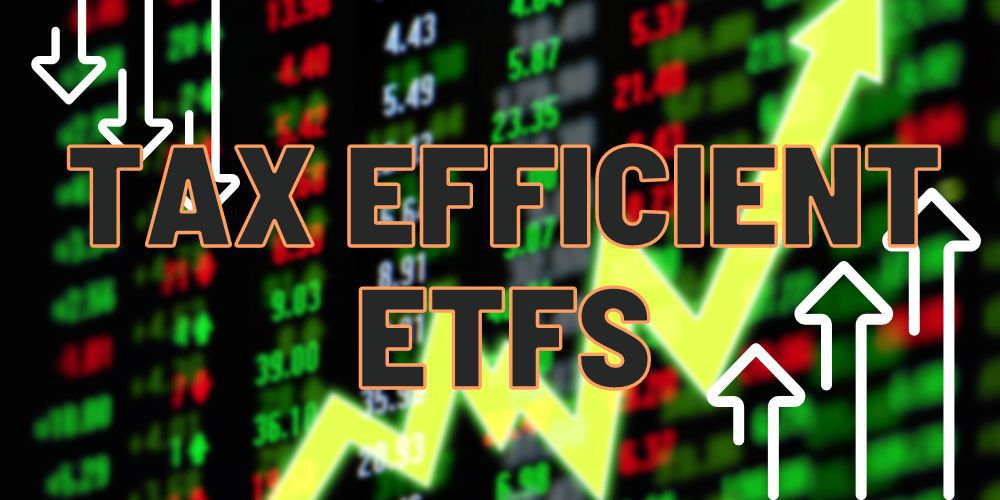
 Tags:
Tags:










